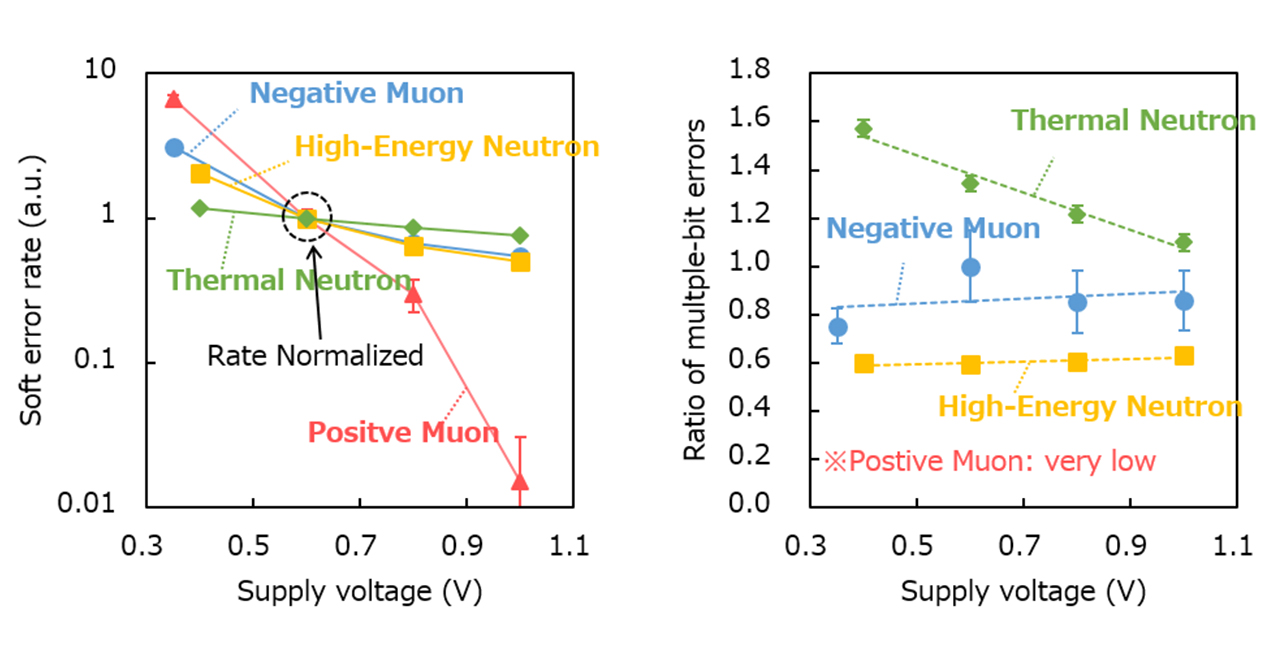Yokohama, Japan, July 16, 2021 --- Socionext Inc. has collaborated with researchers from Institute of Materials Structure Science at High Energy Accelerator Research Organization, Institute for Integrated Radiation and Nuclear Science at Kyoto University and Graduate School of Information Science and Technology at Osaka University, and has successfully demonstrated, for the first time, that the soft errors of semiconductor devices induced by muons and neutrons have different characteristics. The research group conducted experiments to irradiate semiconductor devices with negative and positive muon beams at Muon Science Facility (MUSE) of Materials and Life Science Facility (MLF), Japan Proton Accelerator Research Complex (J-PARC), thermal neutron beams at Kyoto University Research Reactor (KUR), and high-energy neutron beams at Research Center for Nuclear Physics (RCNP) of Osaka University, respectively. By using multiple types of quantum beams, the research group has achieved a comprehensive measurement of the effects of cosmic-ray muons and neutrons in environmental radiation. The encouraging results are expected to drive the development of effective evaluation method and countermeasures for soft errors caused by environmental radiation. The results are also expected to lead to the creation of highly reliable semiconductor devices that will support the future infrastructure.
The results of the research work have been published online in IEEE Transactions on Nuclear Science on May 21, 2021.






